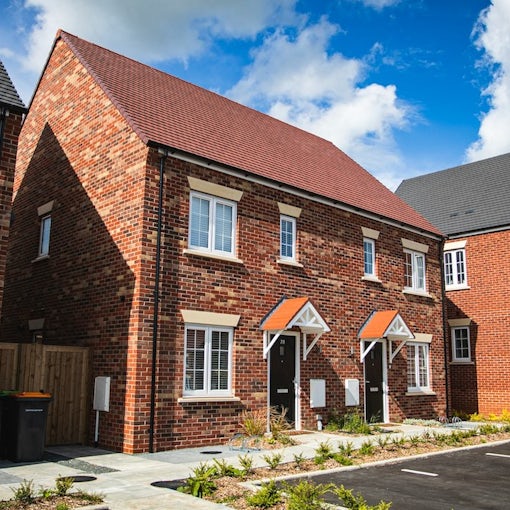The rental market in Lincoln is dynamic, in demand, and crucially, ever-changing. As a landlord, you will have a vital role in providing housing for the broad range of tenants that live here.
To successfully generate the passive income you deserve from your property assets, however, you must act accordingly to any changes or fluctuations in our property market, including adjusting your prices.
In this article, we will look at why Lincoln landlords need to put up their prices.
Setting the right rental price for your Lincoln property is a balancing act.
You will want to ensure it is appropriately priced to entice tenants, while covering your operating and mortgage costs, creating a long-term financial savings pot for any unexpected maintenance issues. Ultimately, you will need your rental figures to give you a return on your investment.
You will also want to remain competitive in the current market conditions. Above all else, you need to ensure that the rental figures of your property align with current inflation.
Rental figures in Lincoln have been subject to raises over recent years, but never typically exceed anything higher than five percent. This prevents any sudden fluctuations that current or prospective tenants will be priced out of, as it typically rises in line with inflation.
How does inflation affect landlords in Lincoln?
Two primary indices measure inflation: the Retail Prices Index (RPI) and the Consumer Prices Index (CPI). While RPI includes a broader range of expenses, such as housing costs like mortgage interest payments, the CPI focuses solely on consumer goods and services.
The RPI and CPI monitor changes in the cost of living, helping policymakers and economists understand inflation trends and make informed decisions. As these indices rise, the value of money declines, leading to an increase in general price levels.
Inflation directly impacts tenants’ wages, property prices, and also therefore, the Lincoln rental market. Property prices generally tend to rise during inflation. Increased demand and rising costs drive property values upwards, making homeownership less attainable. As a result, more and more turn to the rental market nationwide for a solution.
This coin has two sides for you as a Lincoln landlord or investor. Firstly, the rising cost of living and rental figures help raise the return on investment generated by your property assets. Secondly, it causes even less competition when buying a home, as the affordability for purchasing properties rarely matches the rise. Thirdly, however, rising property prices can make expanding your portfolio trickier, particularly if the investment numbers don’t stack up.
Large companies and most small businesses in Lincoln adjust with inflation, amd that is exactly what you should do by running your property portfolio as a business.
What happens if you don’t increase your rent?
There are many instances when landlords, particularly with happy long-term tenants in situ, neglect to raise the rent. We’ve seen it multiple times here in Lincoln and have had to address it as quickly as possible.
Of course, keeping your tenants happy and making them feel valued in your property is vital to a lengthy tenancy and minimising void periods. But this shouldn’t come to the detriment of your operational costs or passive income.
One of the most significant consequences of not increasing rent is the loss of value over time due to inflation. Inflation erodes the purchasing power of money, and stagnant rental income fails to keep up with the increasing cost of living.
As a result of inflation, your rental income may lose its actual value, making it challenging to cover rising expenses such as property taxes, maintenance costs, and utilities. The reality is that you will be reducing the total rent value you receive from your tenants.
All the other costs will rise for your tenants, from their electricity and gas, to their food shopping or petrol/travel fees. If anything, by not raising your rent, you are giving them money back.
Ultimately, the rent discrepancy with the cost of living can become so high that your tenants will refuse to move. And while this is great for minimising void periods, your rental prices will bear no relation to rent in the real world.
For example, suppose your property is obtaining £600 a month, and has been for some years, and similar properties in the area are generating over £1,300pcm. In that case, you cannot legally match that cost quickly. That’s thousands of pounds of income you can miss out on yearly.
Not only that, but the levels of comfort generated for your tenants by not increasing your rent can also lead to them not valuing their own worth. Understanding how much we should be earning based on our skill sets and work output is a vital part of having a career.
If your tenants are too settled with lower rent payments, they may not be inclined to ask for a salary increase at work and, consequently, not understand their workplace value.
What other costs are there to consider by not raising the rent?
Are you a self-managed landlord, or do you want complete control over your time? If you have a managing agent looking after your property, their fees will rise in addition to the rising cost of living. Their fees in electricity and gas for the office, salaries, their own property fees, and rents will also be rising.
While managing your property on your behalf is rewarding, a managing agent’s fees ensure your property is well maintained, and tenants are cared for. By not raising your rent to cover rising management costs, your level of service may be impacted.
If none of the Lincoln landlords were to raise their rent, this would lead to less staff or services to support the management of your property, or less budget to spend on advertising your property to source you the long-term tenants you deserve.
How can I raise my rent?
It is essential to approach this process carefully and legally, considering your tenants’ rights and the legislation surrounding it.
Before deciding to increase your rent, research the current rental market in Lincoln. Look for data on average rental rates, vacancy rates, and demand for rental properties in the area. Understanding the market will help you determine a reasonable increase without pricing yourself out of the competition. Be mindful of the amount you choose to increase the rent by; an excessive hike may lead to tenant dissatisfaction, or even prompt them to leave.
Most crucially, be transparent and reasonable with your tenants! Giving your tenants tangible reasons behind the increase in rent will help them understand the circumstances, and help to maintain a healthy and trusting tenant-landlord relationship.
Of course, having a well-versed Lincoln managing agent on hand to help with your portfolio can identify any opportunities, or necessities, to raise the rents in your properties. If you need a hand with assessing your rental figures, negotiating with your tenants amicably and fairly, or taking back control of your time with hands-off, hassle-free property management, we would be more than happy to lend you a hand.













